In Idea Lab, we’ve been focusing on how we think and how we talk to ourselves as learners. Social-emotional learning is a big part of what we do—especially for gifted students who sometimes struggle with perfectionism or fear of failure. We’ve discussed taking risks, reframing negative thoughts, and using positive self-talk through the ABRA strategy from Jim Kwik: Acknowledge the thought, Breathe, Release, and Align with something positive.
We’ve also been strengthening our brains through hands-on thinking games—no screens needed!
Visual-Spatial Thinking
These activities help students visualize, reason, and problem-solve:
Tangrams – arranging geometric pieces to form specific designs.
Blokus – placing tiles strategically to fit shapes while blocking others.
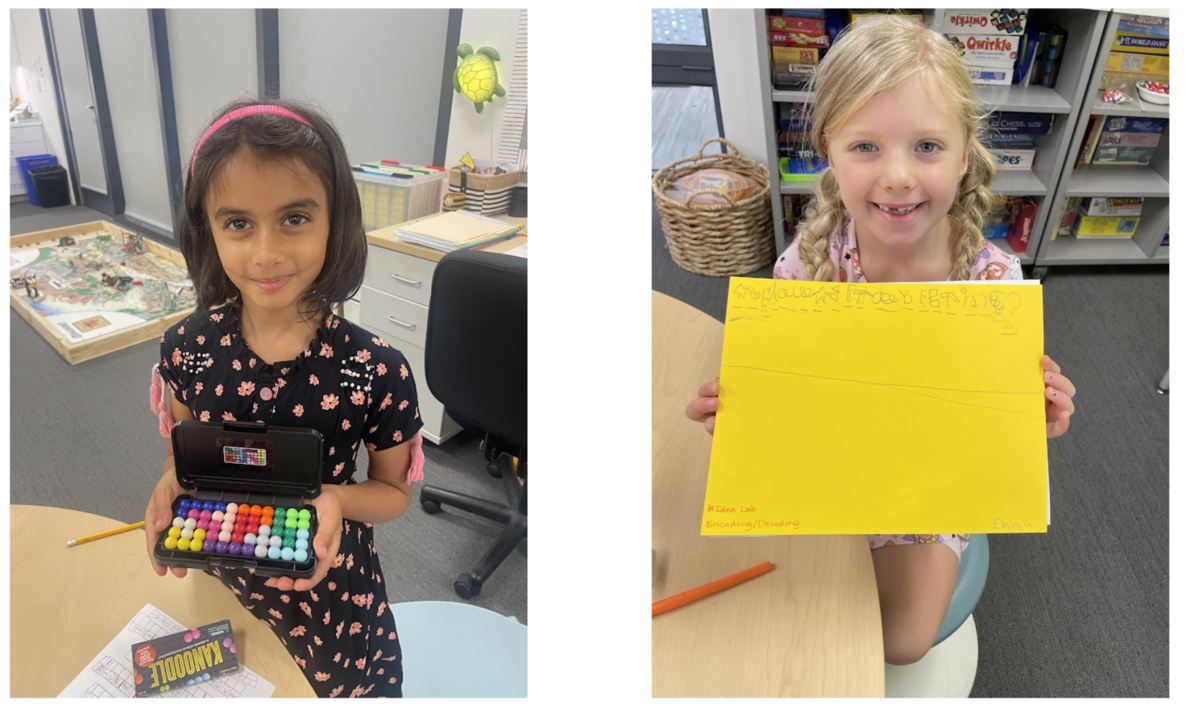
Kanoodle – fitting 2D and 3D puzzle pieces together in hundreds of possible combinations.
Secret Code Messages – taking turns encoding and decoding messages using symbols
Q-bitz – recreating visual patterns with cubes to test memory and perception.
Puzzles – a mix of logic and visual challenges that stretch our thinking.
Katamino– a hands-on puzzle game where players fit geometric pieces together to fill a space, building spatial reasoning and problem-solving skills.
Convergent Thinking
These thinking activities focus on logic, reasoning, and finding one best solution:
Rush Hour – sliding cars in the right sequence to free the red car.
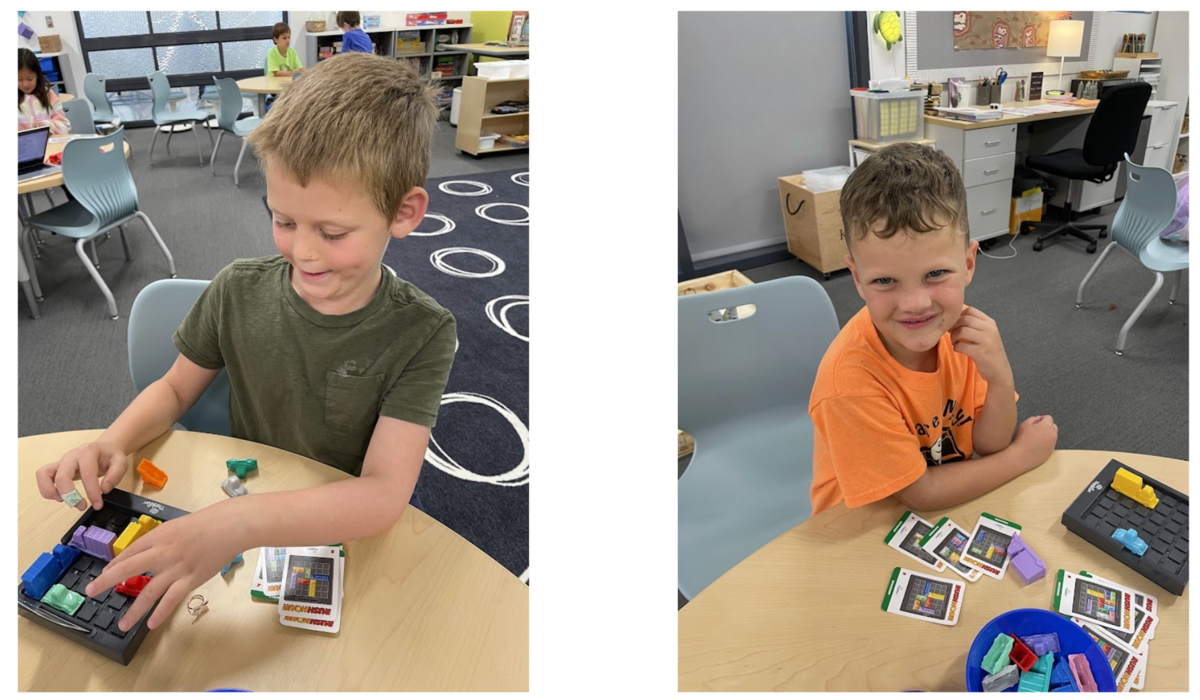 SET– finding groups of cards that all share (or all have different) attributes.
SET– finding groups of cards that all share (or all have different) attributes.Mastermind – cracking a hidden color code using clues.
Color Sudoku – using logic to arrange pieces by color and position.
Shape Sudoku – using logic to arrange pieces by shape and position.
Qwirkle – matching colors and shapes to build patterns.
We recently welcomed some new members to the Idea Lab!
We’re learning that a strong mind grows through creative challenges and kind self-talk.
Idea Lab students are really getting great at both!
Keep up the excellent work!
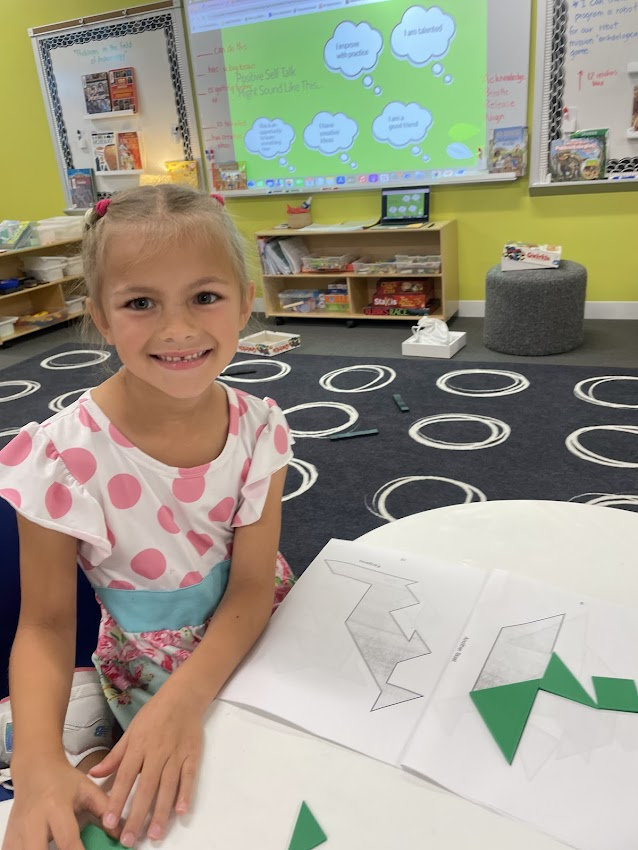
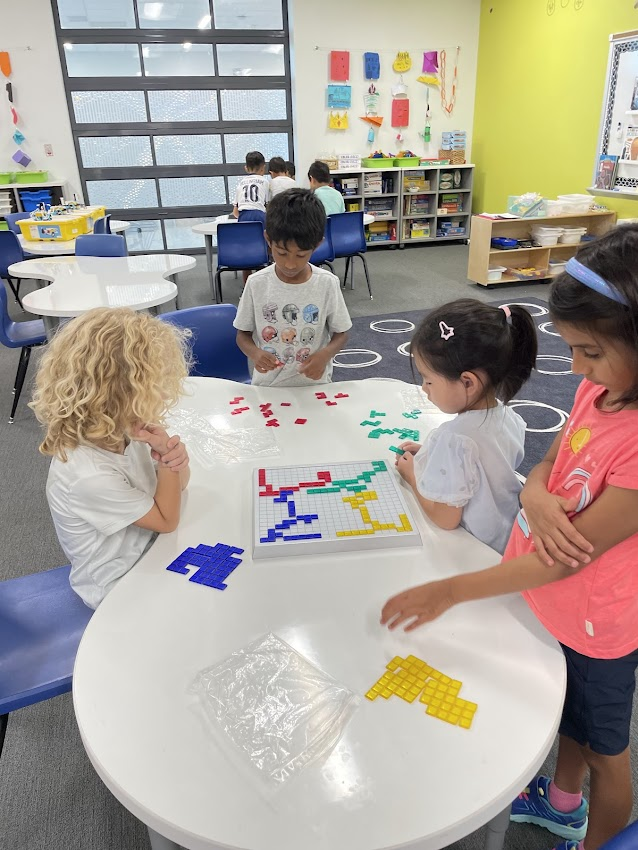

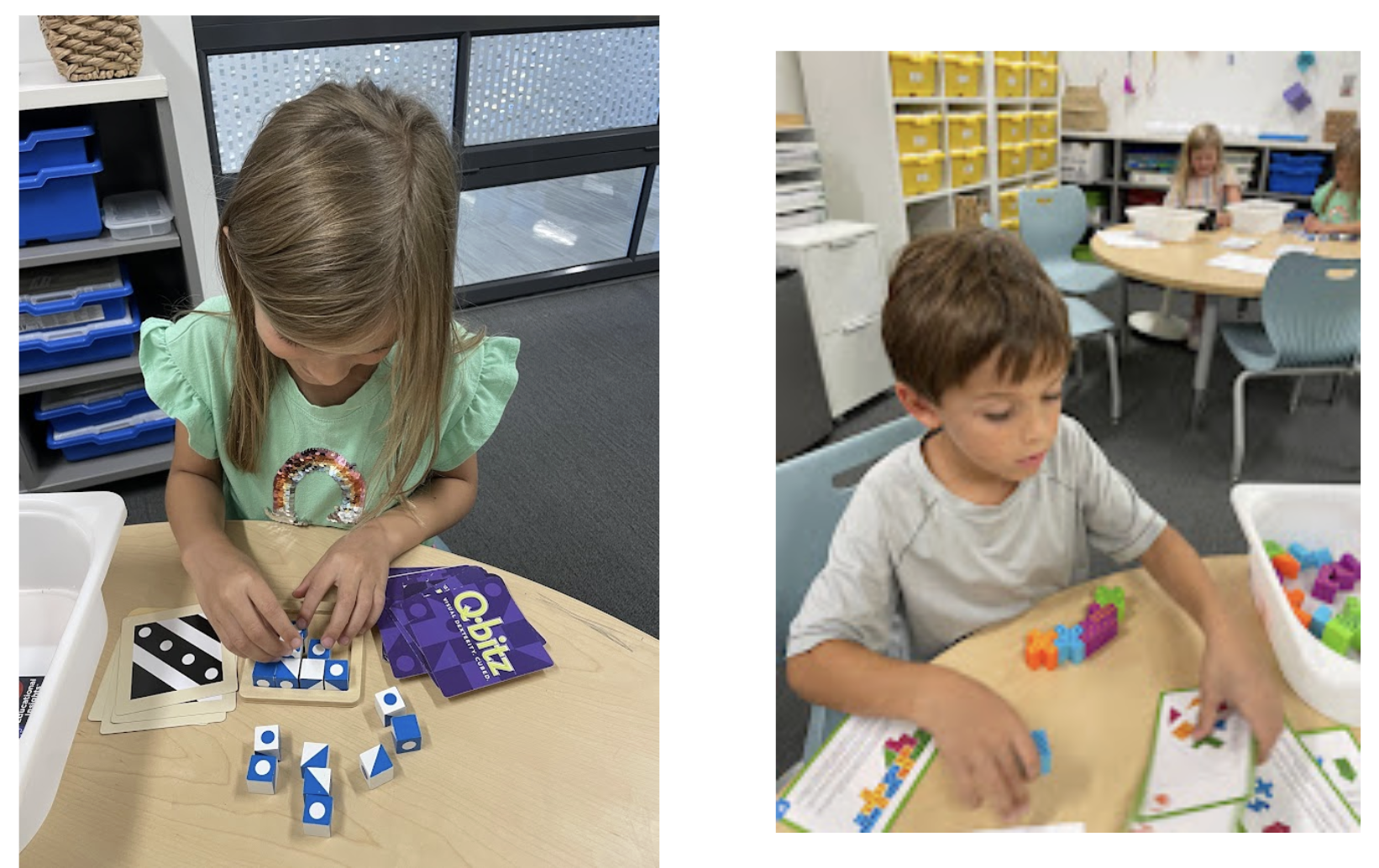
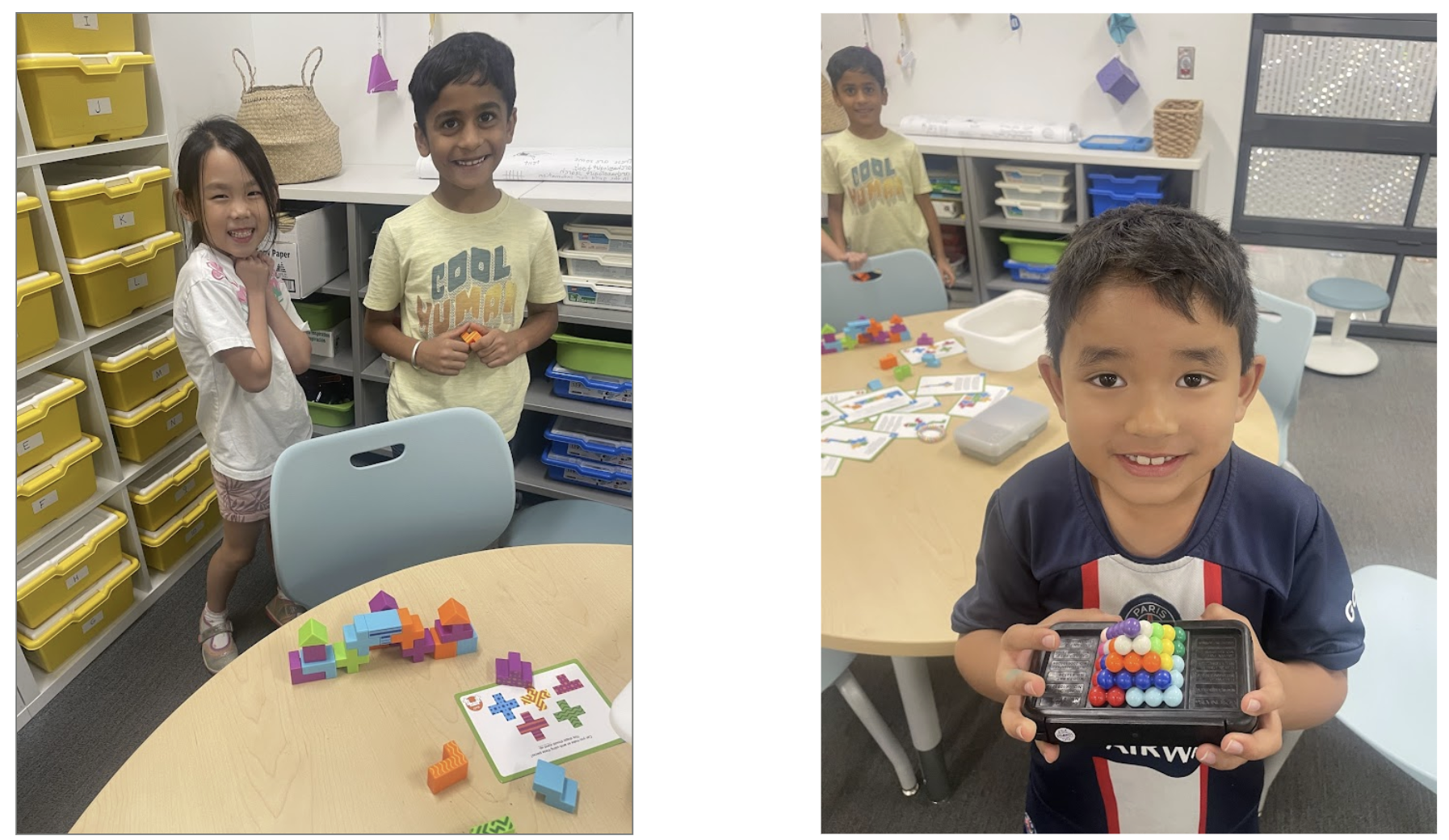
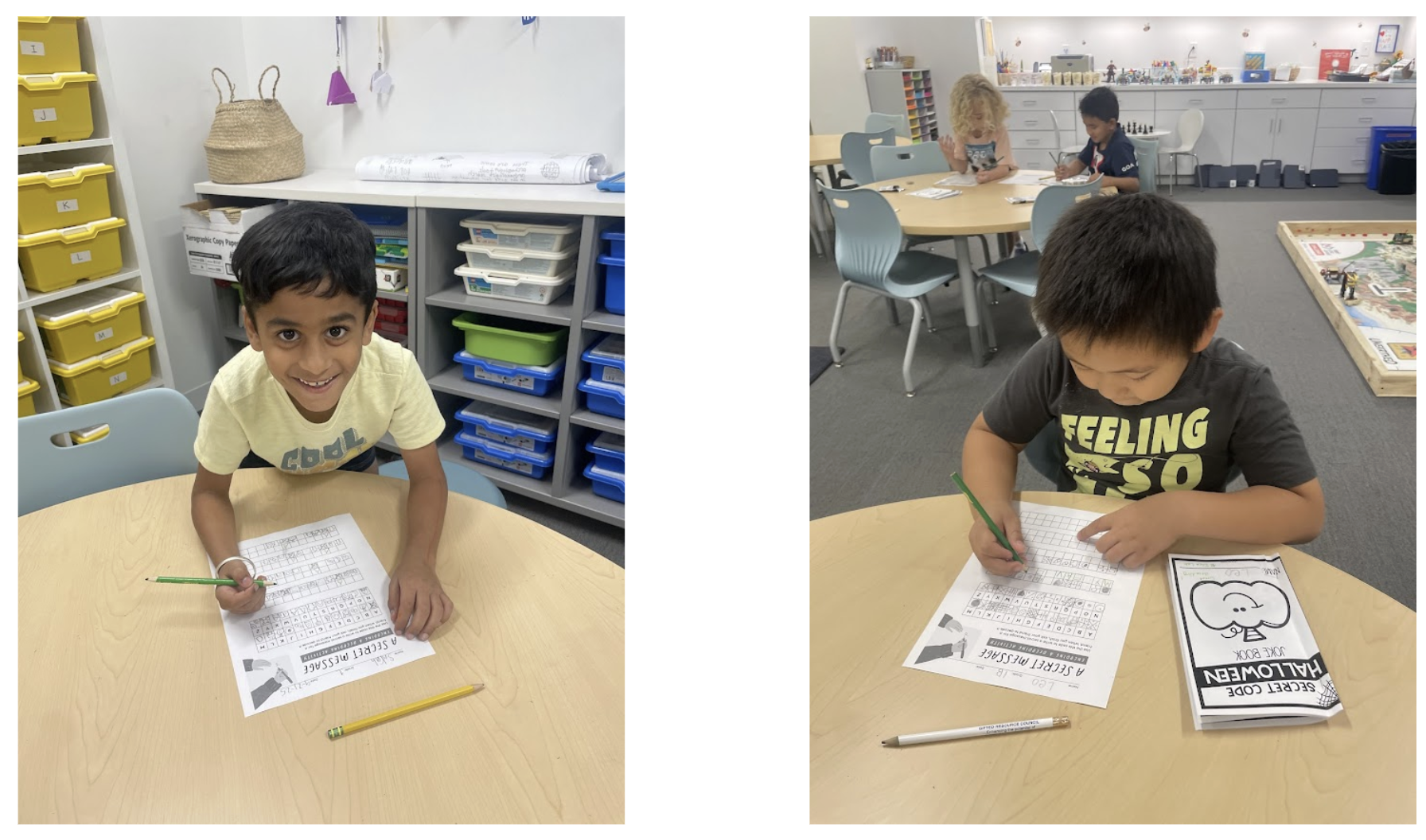
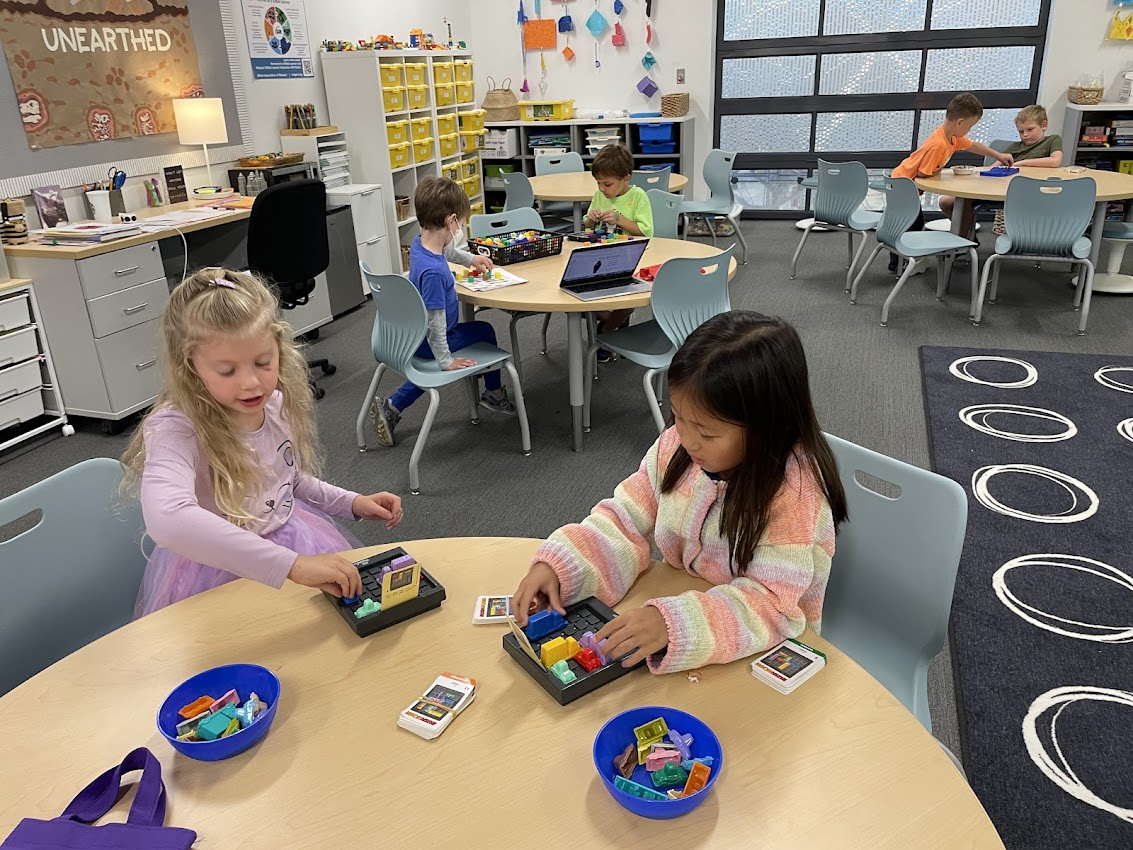
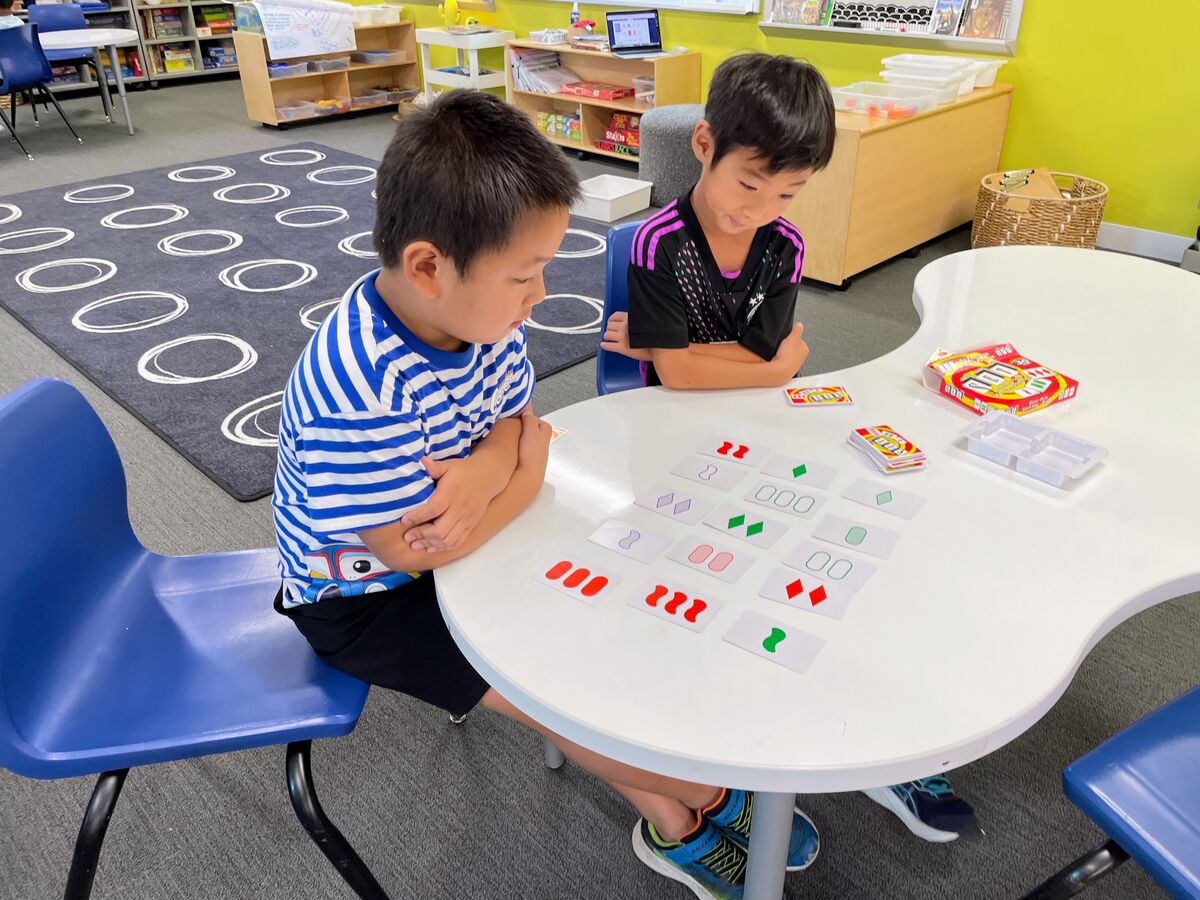
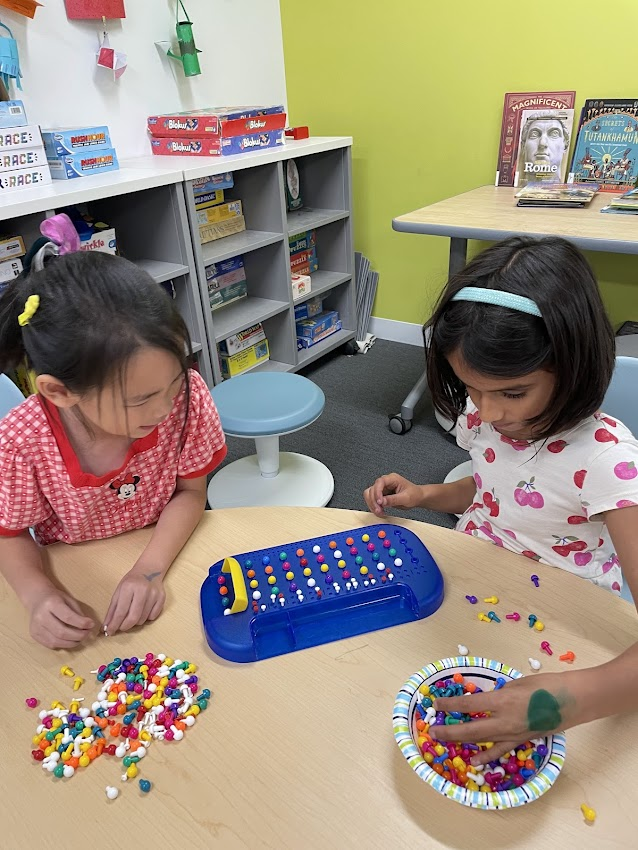
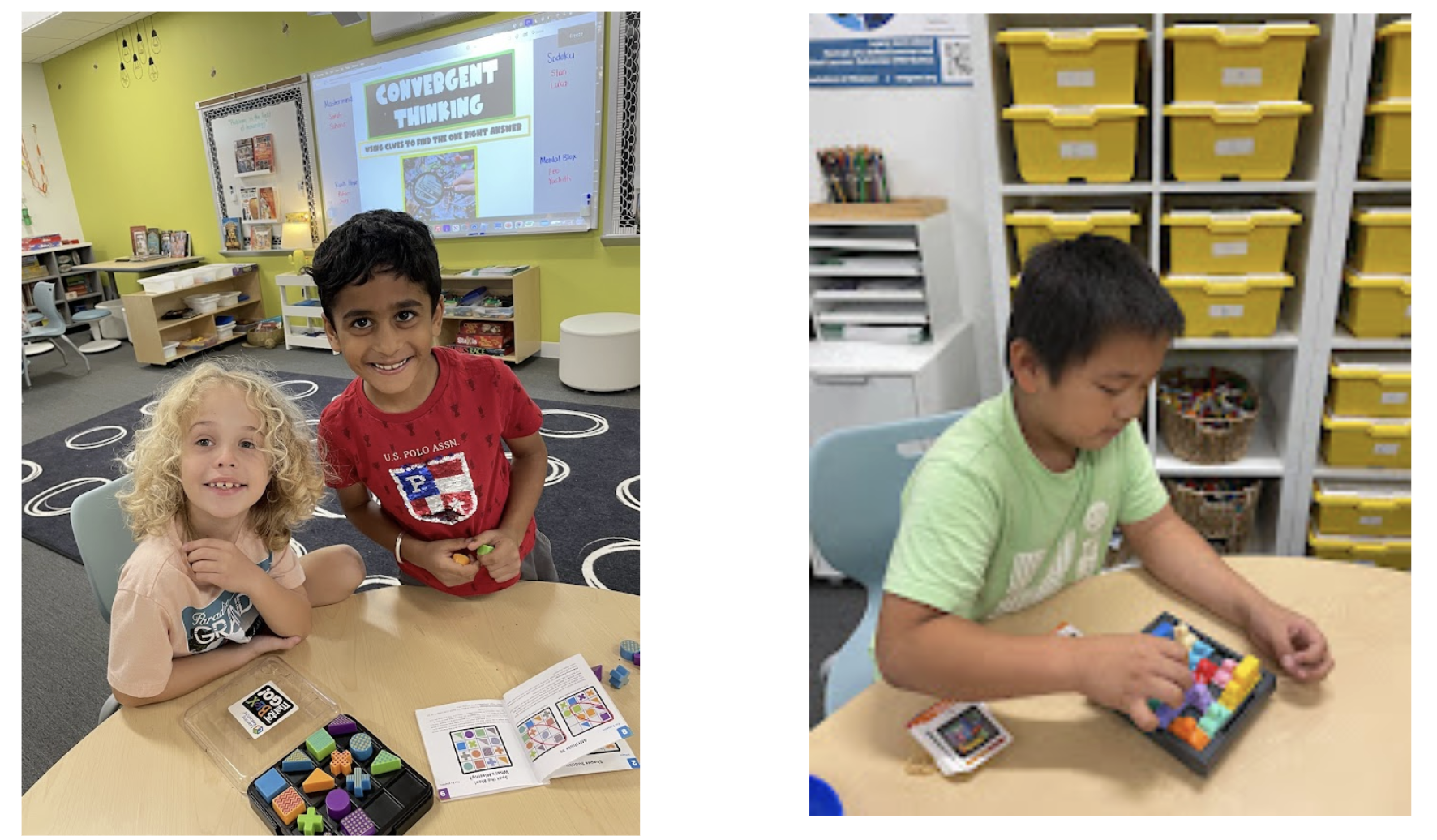
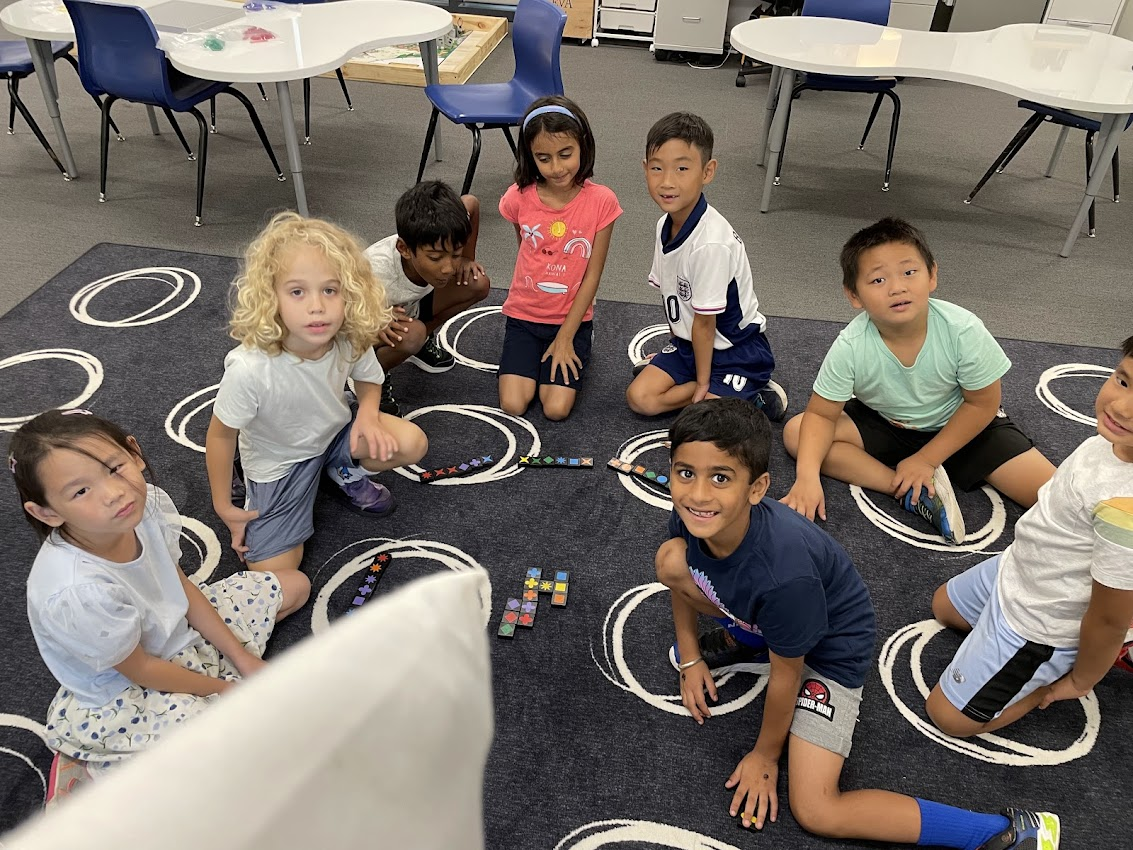
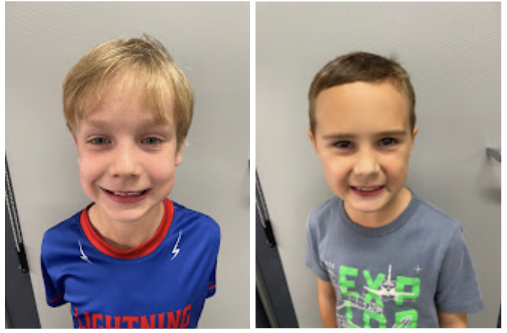
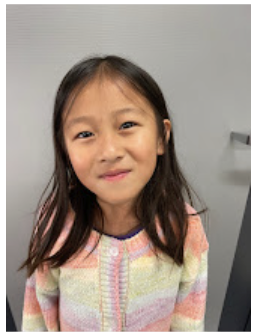





No comments:
Post a Comment